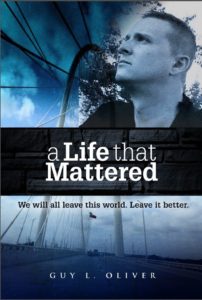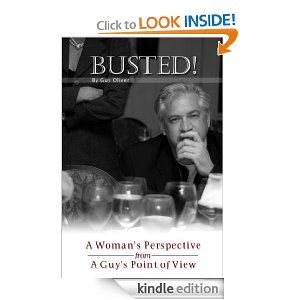As I consider my son’s incarceration, I cannot escape the concept of forgiveness. The most liberal of my friends believe that crime cannot go unpunished and my most conservative friends embrace the concept of the ex-convict reintegrating with society. We all, it seems, believe that the law is necessary and has a purpose—but there seems to be equal agreement that once the debt is paid, forgiveness is in order.
“I see a lot of men here who truly seem to be repentant for the absolutely heinous crimes they have committed and the ruthless lives they have lived. A few pay only lip service to the notion of turning away from a life of crime, and the difference is not difficult to spot. Hypocrisy shines through people brightly in this place. You learn to hear what real truth sounds like because suspicion becomes second nature, here.
There are moments when I trust no one, and as a result the lies become apparent in part because I expect them. Yet there is an abundance of truth—men who simply want to be restored. I am one of them.”
As a child I received significant doses of religious training, perhaps more than was healthy, and the two most common words I heard were repentance and forgiveness. As such, these words always carry a religious connotation for me—but this is where I got it wrong for so much of my life.
My son, it seems, understood these concepts in a much more abstract way. That there can be no forgiveness without repentance, and that neither, ultimately have anything whatsoever to do with religion or even God.
He seemed to understand from his time in prison that repentance is a turning away from the propensity of harming others. Likewise, forgiveness is a turning away from the proclivity to harbor with malice the fact that you have been harmed. You do not need a Christ or a Mohamed or a Moses to inform you in this regard. You are born with this Truth in your heart.
What often goes unacknowledged is the reality that forgiveness is itself a form of repentance. When we do not forgive, we hold ourselves hostage to the wrong that was done to us and in so doing we further harm ourselves, and as I reflected on my son’s incarceration I realized that forgiveness not only heals the perpetrator; it also heals the victim.
By repenting of the sin of harboring ill will toward those who have wronged us we are liberated from their offenses against us. The memories remain but the pain abates.
In researching this book, I had the opportunity to interview two parents who had lost children for the purpose of including their stories side-by-side with my son’s story. Ultimately, they each chose not to complete this project with me. I suspect the process was simply too painful—and with all the humility I can muster, I can only say that I understand a grieving parent choosing not to tell the story of his or her child.
I spoke with one parent whose child was taken from her in an automotive collision just as my child was, but unlike my child, a second vehicle was involved and the driver blamed as being at fault.
Blame. Such a diminishing concept.
At one point during our interview I felt compelled to offer sympathy and said
“I’m so sorry about the accident. It must be terribly difficult for you.”
The flash of anger in her eyes and her accompanying response spoke the entire library of her experience.
“I hate that word; accident. That driver had a suspended license and should never have been allowed on the road. What happened there was nothing short of murder.”
I apologized again, feeling terrible that I had inadvertently touched such a sensitive nerve, but I was also struck by her circumstance. She was not yet capable of offering forgiveness and I cannot blame her nor do I judge her. Losing a child is a terrible thing and grief is a very personal journey; no one should be told how to navigate it or what detours and stops they should make along the way.
As I sat, listening to her, though, watching the anguish on her face, I wondered. I wondered about whether forgiveness might have somehow altered her sense of well-being. That perhaps acceptance might have been gentler, less difficult, kinder.
In the moment I felt an ironic sense of good fortune. Regarding the loss of my child, I had no one to blame. He and his fiancée were traveling from Fort Worth to Austin on a rural Texas highway and just outside the tiny burg of Hamilton, the truck he was driving inexplicably left the asphalt and struck a tree.
I cannot blame the tree, or the vehicle, or the roadway. There was no blame to lay at the feet of another driver, or the terrain, or the weather. And in the moment, as I listened to this woman describe her struggle with her own sense of if only that she no-doubt voiced to herself over and over, I felt a sense of liberation.
We both lost a son, but I had the luxury of being forced to accept the reality that my son, and my son alone, was in control of his situation when he left this plane of existence. The only conclusion I could draw was that it was an accident. Humans make mistakes and sometimes the price is terrible. The only person to blame or to forgive was God.
And who am I to tell God his business?
Some things happen for reasons we cannot explain because it is not our business to explain them. It is our business to pick up the pieces and to embrace the precious gift of life that we are given for the time that we and those we encounter are here.
And I intuitively understood this.
Forgiveness thus came easily for me, eventually. For the mother I interviewed it did not come so easily, in part because she had someone to blame and in my dialog with her I witnessed the ravages of unforgiving. Unforgiveness is certainly a toxin, but it poisoned her, not the driver whose mistake ripped her son from her arms. Which is to say, I sensed the pain of her loss, but witnessed how it was compounded by the choice of her reaction to the admittedly terrible circumstance.
Forgiving the convict is no different.
A person, a human being, because of circumstance, falls prey to the Sirens of addiction. The confluence of emotional lack, desperation, and a naiveté of drugs and alcohol slowly takes control of his or her mind until there is nothing of that person left that is recognizable as the person we once knew.
The madness of addiction thus taking hold, produces some action or series of actions perpetrated by the addict that should never have happened, and we are all left with the simple pain of regret. The addict, the victims, and the families of them both, we all are left with a sense of regret.
The law, then brought to bear, holds the perpetrator accountable as we look on and wish with everything in us that some course correction had intervened before the law did. But regret cannot change the past and we are obligated to look forward with hope and optimism, and forgiveness is the salve of hope for a better circumstance tomorrow. A tomorrow that demands healing and restoration.
The hope of the convict is that he and she can live life as the rest of us do. That, having served his and her time, they can each reach beyond the sentence they served and return to us, rejoining us in the union we once all enjoyed with them. That they will be known by more than a number. They each want to be known once again as the individual they came into the world to be, by a name given to them at birth by loving parents, and called to by friends and family—just as we all do.
But without the forgiveness of those very individuals specifically and society more generally the reintegration that benefits us all is simply not possible. And in the end, this is what my son craved: forgiveness—but a forgiveness with purpose.
He repented and asked that we forgive him so that he could be one of us again, to have the opportunity to work, educate himself, and to give hope and encouragement to those who were on the same destructive path that he, himself, chose a decade earlier.
Ultimately, it was more than mere forgiveness he wanted, though I suspect it was unknown to him at the time; it was really redemption he craved. He wanted a chance to redeem himself.
But redemption is a state of being that can only be achieved through the acts of repentance and forgiveness. For without repentance there can be no forgiveness, and without forgiveness there can be no redemption, and the state of redemption therefore requires the participation of us all.
When we individually harbor unforgiveness we hold only ourselves hostage, but when we harbor unforgiveness as a society we hold a nation hostage. By refusing forgiveness we are held hostage to criminals who return to crime, recidivism at the expense of the taxpayer, reduced economic productivity, and spiritually impoverished families.
The prisoner contributes nothing to anyone—an inhumane state that, if protracted, crushes the human spirit and on a large scale inhibits the evolution of humanity. When we diminish the repentant prisoner through unforgiveness we are all diminished.
Understanding this reality firsthand, Tim sought to right his wrongs. And can we ask more than that of anyone?
It was early in October 2012, roughly three years after the maelstrom, that my son began the march toward redemption. Released on parole seven years early, he began the next chapter of his life with a determination that was strikingly palpable and we, those of us who knew him, waited, hoped, and prayed. And my prayer was this:
“Run this race, son. Fight this fight. Get back up on that goddamned horse and show me the man I know you are.”


